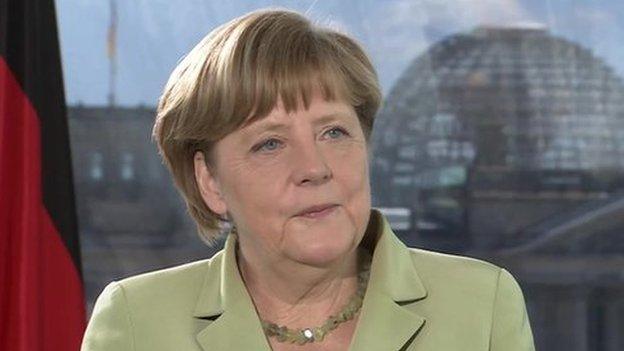EU referendum: David Cameron says comments misinterpreted
- Published
- comments
David Cameron: "I feel there was a misinterpretation"
David Cameron has denied saying ministers will be forced to back him in the EU referendum or quit their jobs.
The PM had told journalists everyone in government had "signed up" to his plans as set out in the Tory manifesto.
That led to criticism from some Conservative MPs, who were unhappy at ministers being told how to vote.
But the PM has now said his comments were "misinterpreted" and that he had been calling for backing during the negotiations, not the vote itself.
Mr Cameron's plan is to renegotiate the UK's relationship with the EU ahead of an in/out referendum by 2017.
Follow all the day's developments on Politics Live
He says he is confident of securing the changes he wants so he can push for a Yes vote to stay in Europe, but says he "rules nothing out" if his demands to EU leaders are rejected.
Conservative backbench MPs will be allowed to campaign as they wish, but questions have been raised over whether Eurosceptic government ministers would be forced to support the government line.
On Sunday night, the prime minister told journalists at the G7 summit in Germany: "If you want to be part of the government you have to take the view that we are engaged in an exercise of renegotiation to have a referendum and that will lead to a successful outcome.
"Everyone in government has signed up to the programme set out in the Conservative manifesto."

'Passion, muddle and bitterness'
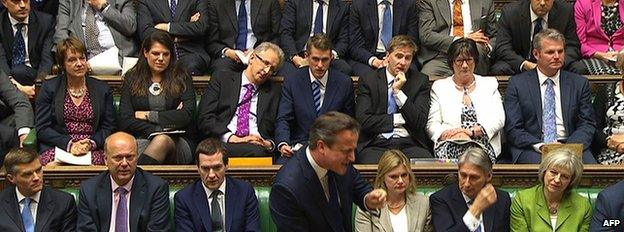
By James Landale, BBC deputy political editor
What is it about the Conservative Party and the European Union? What is it that prompts such passion, such muddle and - on occasion - such bitterness?
The relationship between Britain and the EU tore the Conservatives apart for years in government and in opposition.
David Cameron was elected leader ten years ago on a promise to stop his party banging on about Europe. A decade on the prime minister has got his drum sticks out and is banging his way around Europe. But not all his party is marching to his beat.
Some at Westminster had expected the Tory battle over the EU to be delayed until the time Mr Cameron had negotiated the reforms he wants to see.
Then his MPs would be able to judge whether or not the prime minister had lived up to his promise to reform fundamentally the UK's relationship with the EU. And until then, so it was thought, the Eurosceptics would give him the benefit of the doubt.
But this assumption was wrong and the internal battle within the Tories has begun already. Some MPs are talking openly about putting principle over party.
Others are threatening to vote No in the referendum regardless of the shape of Mr Cameron's reforms.

Mr Cameron added: "I am carrying out a renegotiation in the national interest to get a result that I believe will be in the national interest. I'm confident I can get that."
The PM told reporters it was not a "on the one hand, on the other hand approach".
"The government isn't neutral in this. We have a clear view: renegotiate, get a deal that's in Britain's interest and then recommend Britain stays in it."
That led to Monday's newspapers carrying headlines such as "Cabinet told: Vote for Europe or resign" and prompted ex Conservative minister David Davis to call it a "rather unwise move".
No 10 sought to clarify Mr Cameron's words and later, in his press conference, the PM was repeatedly asked about the issue.
He said "it's clear to me that what I said yesterday was misinterpreted", adding that he had "clearly" been referring to his EU negotiations and not the referendum.
Mr Cameron, who referred to notes while answering the questions, would not confirm whether there would be a free vote on EU membership, saying while this was "frustrating" to some people it was important to "take it stage by stage, step by step".
Reporters at the press conference challenged him over comments in an interview , externalon the BBC's Andrew Marr Show in January, in which the PM also appeared to rule out a free vote.
But Mr Cameron disputed that interpretation, claiming he had been interrupted on the Marr programme.
BBC assistant political editor Norman Smith said there two possible explanations - either a "media muddle", or that "Mr Cameron has climbed down in the face of a backbench backlash" from Eurosceptic MPs unhappy at being forced to vote with the government.
Conservative commentator Tim Montgomerie said No 10's "clarification" over the issue was "absolutely necessary" since the number of ministers who were likely to resign if forced to campaign in favour of the EU would be in the "double figures".

EU referendum in focus
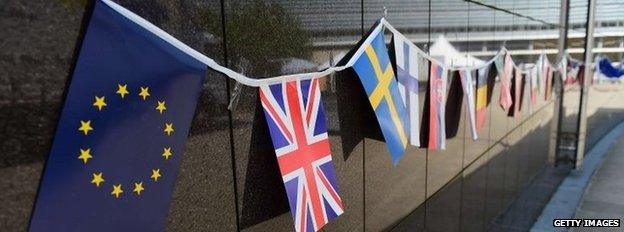
David Cameron is starting renegotiation of the terms of Britain's EU membership ahead of a referendum. Here is some further reading on what it all means:
Q&A: The UK's planned EU referendum
The UK and the EU: Better off in or out?

Earlier, there was criticism from some Conservative MPs over the possibility that ministers would not be allowed to campaign to leave the EU.
Former minister David Davis said such a stance was "rather unwise".
He told BBC Radio 4's Today Programme it was "pretty plain" that anyone wanting to vote to leave the EU would have to quit the government, adding that this was "something of a change from what was presumed right up to the election and, in my view, a rather unwise change".
Another Conservative MP, former children's minister Tim Loughton, told BBC News the prime minister had made a "mistake", saying it was wrong to "shackle" MPs and ministers when it comes to the vote.
But communities and local government minister James Wharton, who as a backbencher piloted legislation for the EU referendum, said it was "reasonable to expect" the principle of collective ministerial responsibility to apply.
He said Mr Cameron had not ruled out recommending a No vote if his reform proposals are rejected.
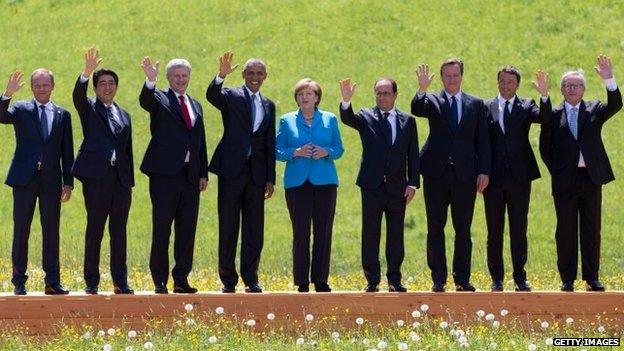
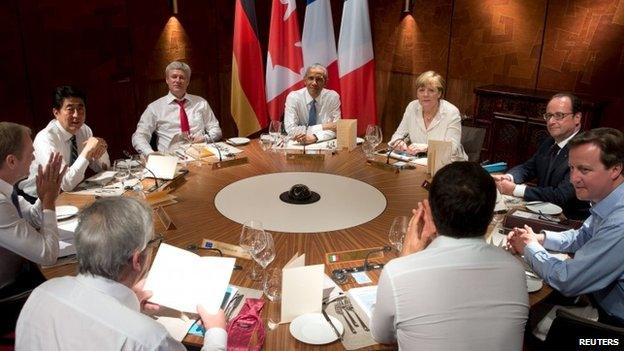
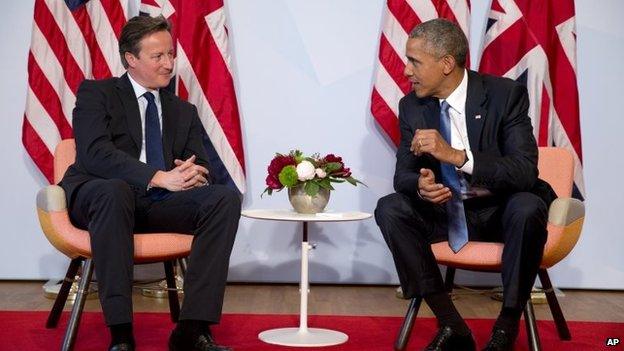
Meanwhile, former cabinet ministers Owen Paterson and John Redwood have signed up to the newly-formed Conservatives for Britain group to keep the pressure on ahead of the public vote.
Steve Baker MP, who is co-chair of the 50-strong group, said he believed some cabinet members would resign over the issue.
"If we don't get a sovereign Parliament, I would be quite surprised if one or two don't resign, but that really is a matter for them," he told BBC Radio 5 live.
At the G7 summit, US President Barack Obama gave the strongest indication yet that Washington wants a Yes vote in the EU referendum.
During talks with the prime minister in Schloss Elmau, he said America was "looking forward" to the UK remaining part of the EU" because "we think its influence is positive not just for Europe, but also for the world".
On Twitter, external, UKIP leader Nigel Farage said: "We don't need to take foreign policy advice from the American President. The last time we did that it was called the Iraq War."
He added that Mr Cameron "clearly wants to keep Britain inside the EU under any circumstances".
- Published8 June 2015
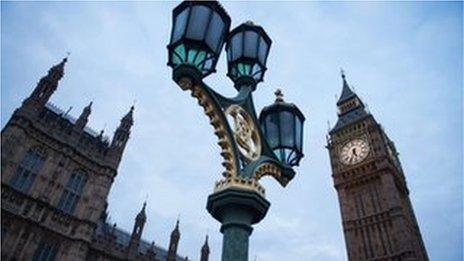
- Published8 June 2015
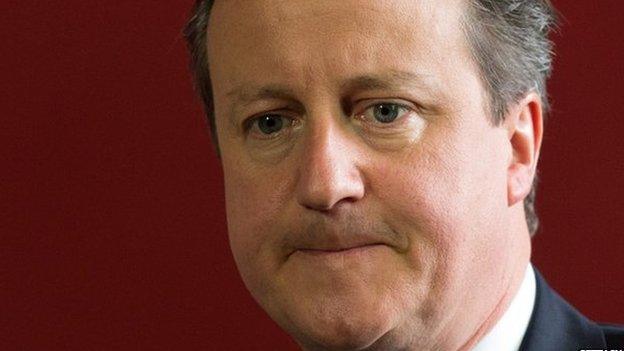
- Published8 June 2015
- Published30 December 2020

- Published17 February 2016
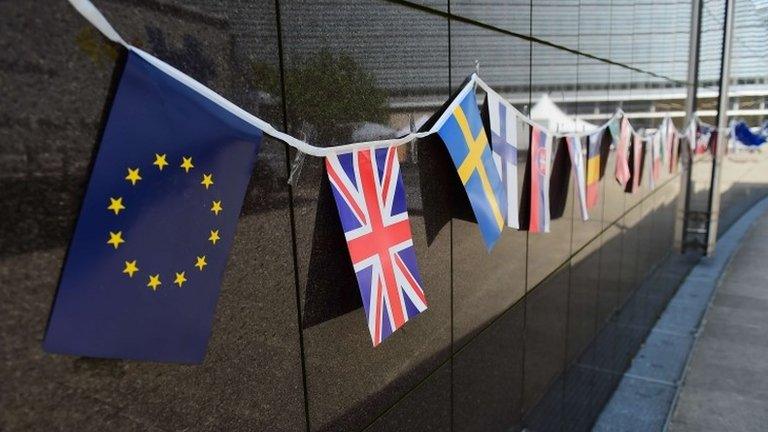
- Published7 June 2015
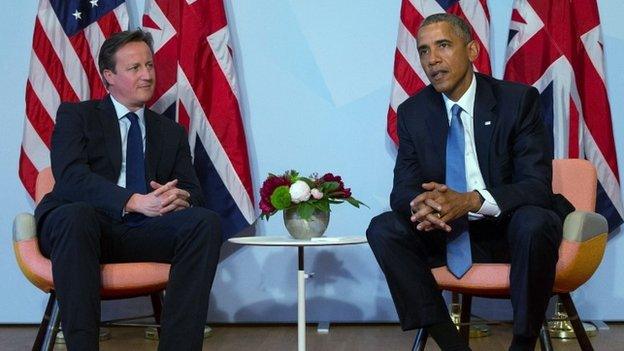
- Published4 June 2015
